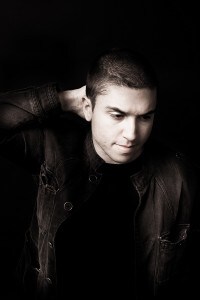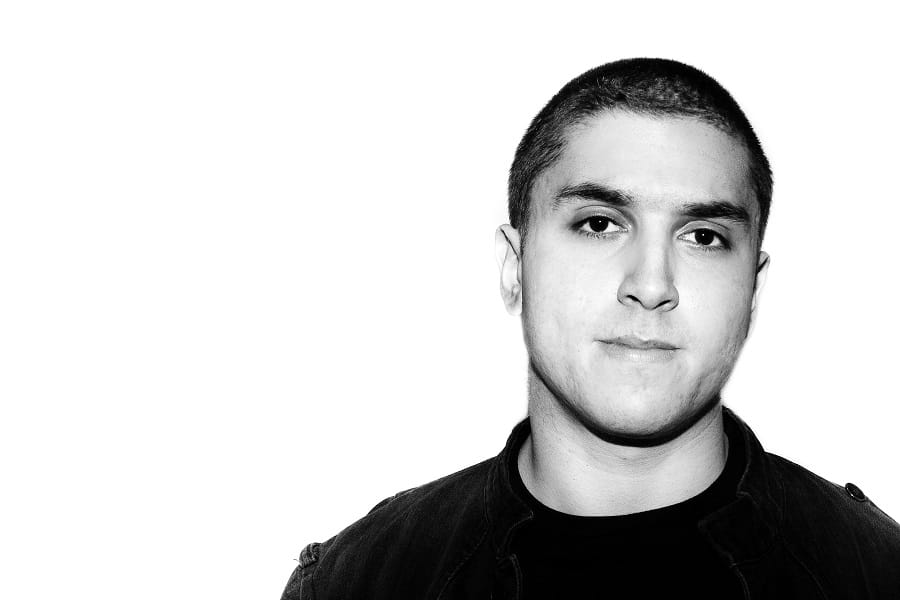In this interview I welcome Monoverse, progressive and trance producer, label owner, and DJ. He’s just released an EP on Infrasonic recordings which has been supported by the likes of Paul Van Dyk and Markus Schulz.
Hey Monoverse, thanks for doing the interview! It’s awesome to have you on here.
It’s awesome to be here! I’m a big fan of the site, constantly lurking and sharing the articles within the communities I’m a part of so I’m honestly having a bit of a nerd-gasm doing this interview
Firstly, how long have you been producing for? What made you start initially?
I’ve been producing for a little under four years total now, not including time spent opening and closing fruity loops in frustration when I was much younger. I’ve been listening to trance since I was 12 or so when I started playing Counter-Strike competitively. Eventually I stopped gaming and picked up DJing to fill the hole, but really felt I had more to offer to the music world than just playing the music others have made.
Your basses always stand out to me. Any tips for the readers out there? What makes a good bassline?
I’m a firm believer that the ultimate deciding factor on strong sound design isn’t layering a bunch of random sounds but instead having solid patches that are easily represented well in the mix
I’m really flattered to hear that! I’ve been spending a lot more time doing the sound designs of my basslines because one of the main critiques I’d receive from fellow producers was that it was lacking at first.
The bassline can truly set the tone in dance music, but before even getting into sound design you need a proper groove – not only pattern, but dynamics. So, in that respect, things like sidechain settings and even EQ can have a major effect on how your bassline really plays out. I used to not care at all about sidechaining especially, and now I realize the impact it has on the groove itself. For instance, Adjusting your sidechain trigger shape or volume envelope on tools like LFOTool/VolumeShaper is extremely important to do on a track by track basis since different patterns and tempos will act in different manners.
Once I lay out the patterns and set the sidechain, I’ll start further developing my sound design. I think I’ve always underestimated just how much you can do with layering and processing to get a full sound. For example, the run down of one of my recent rolling trance basslines looks along the lines of sub layer (sine), mid-bass layer (filtered down and driven pretty hard), and high layer (saws), all a part of a single instrument rack in Ableton. From there, I apply pitch envelope decay to both the mid bass and high layer to get extra pluck on the attack, and also layer with a percussive synth layer (although more recently I’ve just been using percussion samples with little sustain). Each layer is processed individually, and together on the bus output for further treatment with EQ, compression, etc., plus some chorus and/or reverb on sends. Finally, I add a distorted layer higher in the frequency spectrum 100% wet in reverb with a liberal high pass filter and aggressive sidechain pump to be mixed subtlely and fill out the stereo space. For convenience, the outputs of the bus and the distorted reverb layer are sent to a separate audio channel, while the filters of the individual layer are mapped together in ableton’s instrument rack macros. This way, it’s less channels I have to automate in the end!
None of this was set in stone during the process, and I’m always tinkering with settings throughout the creation of it to make sure each sound sits properly in the mix. Of course, this might seem like overkill as well! I’m a firm believer that the ultimate deciding factor on strong sound design isn’t layering a bunch of random sounds but instead having solid patches that are easily represented well in the mix – it’s important to be just as picky in the initial creation of the layers as it is layering and processing them.
What’s your go-to piano plugin?
For a long while I used nothing but Ableton’s grand piano in the Simpler and simply applied a ton of reverb! It sounds great straight out of the box. Occasionally, I’ll layer it with samples from a Kontakt library. I also love to sneak in the DSK Music Box, a fun little music box VST that’s free!
You also run a record label. What piece of advice would you give to readers of this site looking to get a track signed?
I was hoping you’d ask something along these lines! Recently, we’ve been getting a lot of e-mails that are just blank or completely irrelevant to the label itself. Before you reach out to the label, make sure that you’re making music that’s appropriate for the imprint! Beyond that, send an appropriate message with some brief information about yourself and how to contact you.
Finally, I have to stress the importance of waiting until your music is ready to be released to the public. I, like many others, rushed into releasing my first tracks and I’m surely not the first person to ever admit that they regret doing so. Thankfully, it was under an alias that only a handful of people would recognize, so none of you will ever hear that nonsense. If the track is something you can honestly and proudly say you’d be comfortable with being associated with you for the rest of your foreseeable future, then consider shopping it to record labels.
Read: 6 Steps to Sending the Perfect Demo Submission (Tuts+)
What’s one thing you wish someone had told you when you started producing?
This is one of my favorite questions to answer in interviews, because it’s something I’m sure a lot of producers can benefit from even if they’ve already heard it: finish everything worth finishing, regardless of whether or not it meets your personal expectations. Not every project you finish will be worth sending to record labels, maybe not even showing to those you’d regularly ask for feedback. However, I figured out in the first year of producing that with each project I finished, I became exponentially better at finishing the next. The process becomes streamlined, and more of what you’ve picked up along the way gets put into practice with less effort. Eventually, things that were daunting will be second nature and you’ll be able to finish better music faster. Down the line, you can recycle those earlier “finished tracks” and apply the knowledge and workflow you’ve acquired in doing many more to create an even better product in the end.
If you could only use two plugins for the rest of your life, what would they be?
I would quit, I don’t think I’d make it without all of my go-to plugins! That said, if i were really forced down to two, I’d go with Sylenth and ValhallaDSP’s Vintageverb. I’d have listed Cytomic’s The Glue but Ableton 9 has it built in, so hah!
Finally, if you had to listen to an artist on repeat for 24 hours, who would it be?
Without question, it would be Andrew Bayer. His album “If It Were You We’d Never Leave” would be enough, and adding in the rest of his discography it would make an epic 24 hour listen. I might actually try that if i have the time!
Thanks! Where can people find you online?
Thank you, and thanks to those reading! If you’re interested in my work, you can find me at:
 https://www.monoversemusic.com
https://www.monoversemusic.com
https://www.facebook.com/monoverse
https://www.twitter.com/monoversemusic
https://www.youtube.com/monoversemusic
https://www.soundcloud.com/monoverse
https://itunes.apple.com/us/podcast/monoverse-radio/id564121840

